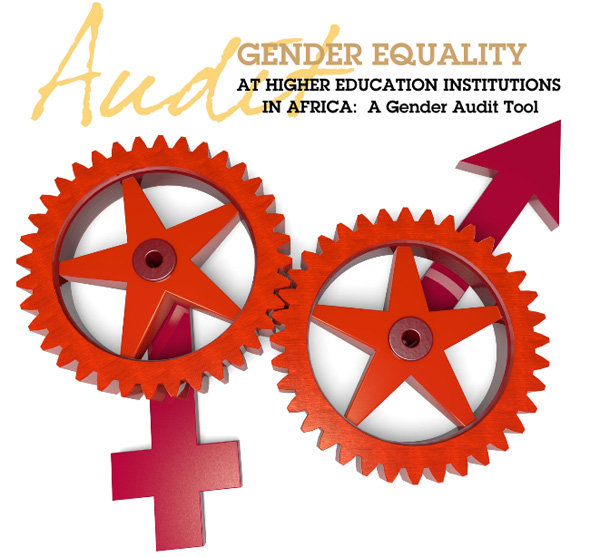The Centre for Human Rights recently launched a Gender Audit Tool for gender inequality at higher education institutions in Africa. The tool, developed with funding from the Norwegian Ministry of Foreign Affairs, is designed to introspectively investigate the state of gender (in) equality at higher education institutions across Africa with a view to fostering greater gender parity.
The aim of this tool is to guide transformation and gender mainstreaming at the University of Pretoria, and should form part of the strategic plans of all departments and faculties, said Prof Frans Viljoen, the Director of the Centre for Human Rights.
The launch took the form of a panel discussion and reflected on the value of tools such as the one developed by the Centre. In opening, Ms Patience Mushungwa, Executive Director for Human Capital and Management at the University of Pretoria, expressed her appreciation at the development of the tool in light of the recent institutional culture survey. She reiterated the need for a deeper introspection of the true state of inequality at UP and other higher education institutions as the mere reliance on numbers is not sufficient to indicate true transformation.
![]() Download the Gender Audit Tool
Download the Gender Audit Tool
Professor Stella Nkomo, a panellist and professor with the Department of Human Resources at the University of Pretoria, emphasised that no institution is gender neutral, due to the influence of our history and the social context in which we operate. Tools such as the one developed, are therefore useful in foregrounding the lack of neutrality with a view to enhancing greater equality and equity. She called for the dissemination of the Tool to as wide an audience as possible focusing on Heads of Department and Deans of Faculty so that there is accountability for a failure to change.
Dr Maretha De Waal, a co-contributor to the tool, shared with the panel the problematic of things unchanged through the years. As the former director for the Institute for Women’s and Gender Studies, she noted that the University’s policies remain archaic and therefore fail to provide a clear direction towards transformation. Despite this however she acknowledged that the drive towards equality can be furthered from the least likely of channels and highlighted the whistle-blower policy which places an imperative on the need to report cases of discrimination based on gender.
Alfred Moraka, an LLM student and assistant lecturer with the Department of Jurisprudence, commented on the prevalence of a specific expression of African male masculinity as dominant on campus which served to exclude all unfamiliar “others” from the spaces and places in the university. According to him we need to focus on the role of space in the construction of sexuality and deconstruct the division of spaces within the university that seek to exclude others from access to the full enjoyment of resources. He finally stressed the importance of realising that transformation means more than mere tolerance of the unfamiliar other but rather the changing of mindsets in order to foster a true appreciation for diversity.
Dr Polo Moji, a post-doctoral fellow with the department of modern European languages, welcomed the inclusion of LGBTI persons within the scope of gender transformation as presented in the tool. She also reiterated the need to focus on the intersectionality of gender and other factors of oppression and discrimination such as race and class. Her final caution was to take heed of the language of transformation to ensure that it is not condescending and patronising. From our various points of privilege we must take heed to not speak on behalf of others but rather conceive of a space of critical thinking and engagement that makes room for all without discrimination on any basis.
The Gender Audit Tool was well received and it was recommended that the Tool be disseminated for implementation across the university, through the various deans of faculty and heads of department. It was also recommended that a gender policy be developed with an implementation unit, spearheaded by university management to ensure that gender (in) equality is brought to the fore and appropriately responded to. Moving forward, the Centre for Human Rights will engage with University Management to develop a dissemination and implementation strategy to further the drive towards gender equality at the University of Pretoria.
The Tool will also be disseminated to the Centre for Human Rights partner Universities across South Africa and Africa at large, in order that gender equality at higher education institutions may be realised as a human rights imperative.
To obtain hard copies of the Gender Audit Tool, please contact the Centre for Human Rights.
Download


